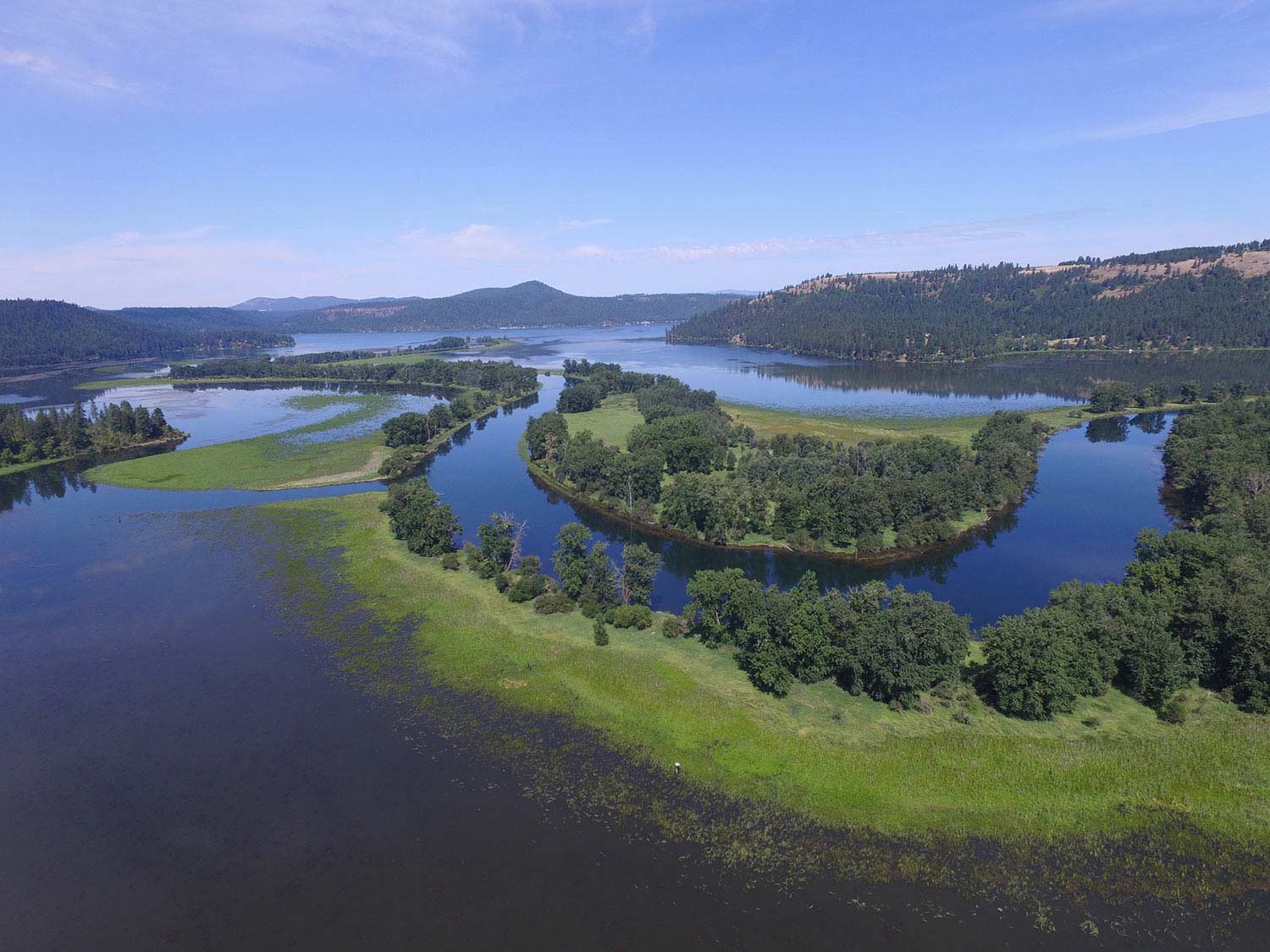
Silver Valley Troubles
In 1991, the Coeur d'Alene Tribal Council led a lawsuit and force restoration of the Coeur d'Alene watershed.
Over a 100-year period the mining industry in Idaho's Silver Valley dumped 72 million tons of mine waste into the Coeur d'Alene watershed.
The Creator owns the lake, but He put the Coeur d'Alenes here to take care of it. They shed tears for the lake, the river, and the monumental task ahead. It would mean years of struggle over ownership and over terrible environmental damage. Thus began the Coeur d'Alene Basin Restoration Project and the largest natural resource damage lawsuit in American history.